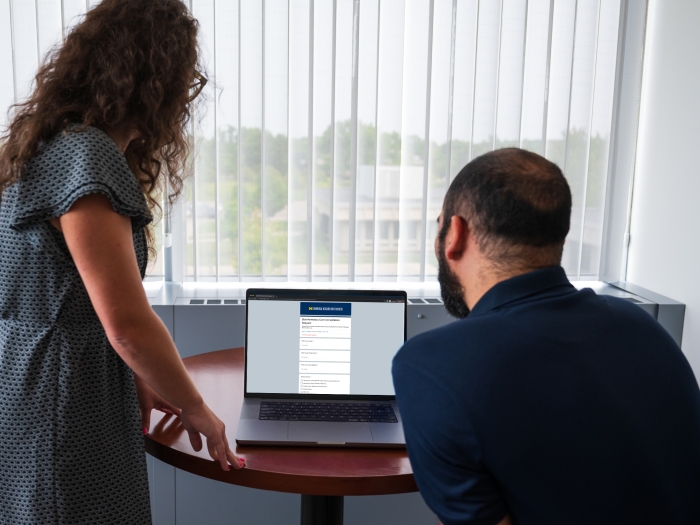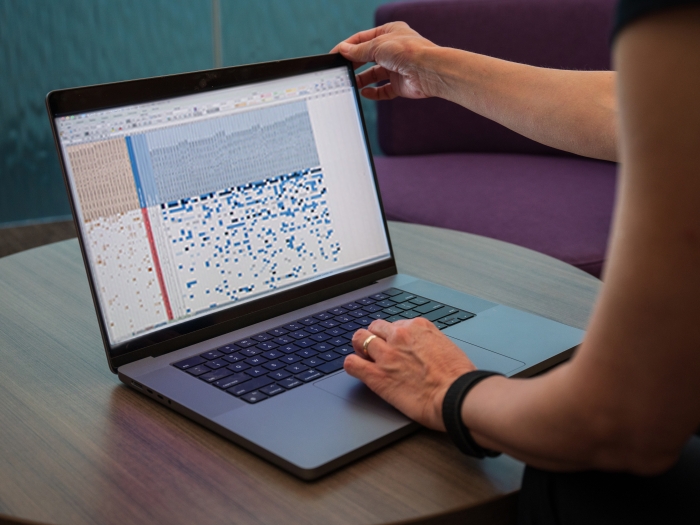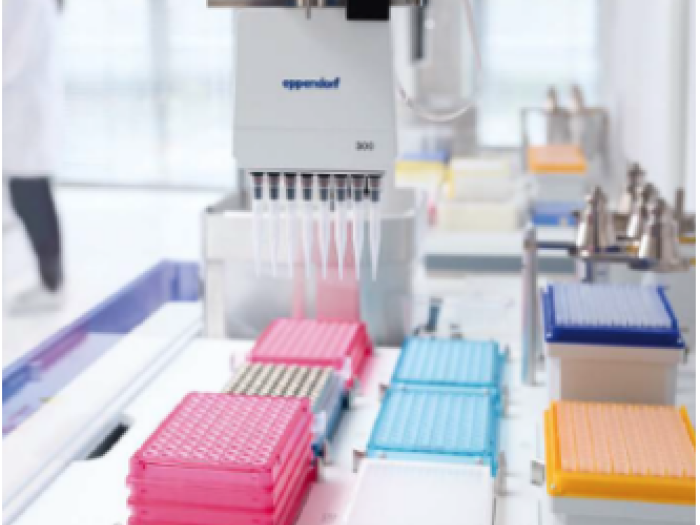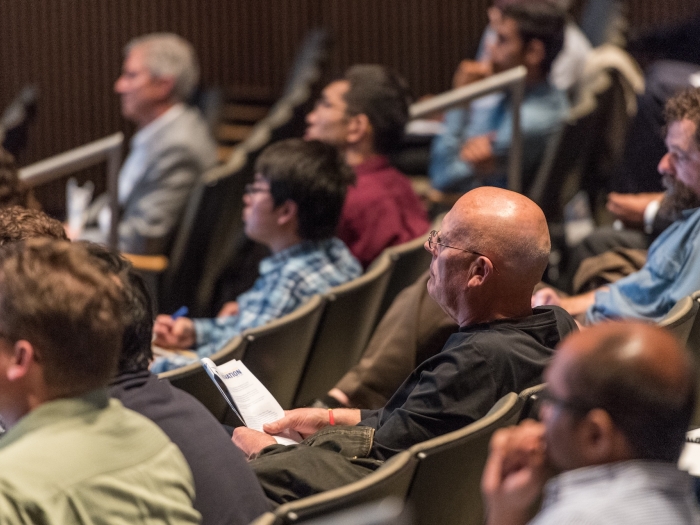
Bioinformatics analysis to support research activities.
The Bioinformatics Core helps researchers identify and interpret patterns in RNA and DNA by placing sequencing data into a biologically meaningful context. This encompasses assisting with experimental design, developing reproducible workflows, analyzing next-generation sequencing data, and supporting manuscript development/publication.
“We are thrilled with the services provided to our team by the BRCF Bioinformatics Core, the services provide enabled us to publish top tier papers and be awarded multiple NIH funded grants. We are very grateful to have this Core available to us on campus!”

We offer an initial, free pre-analysis consultation to discuss the types of analysis and support bioinformatics can provide, in addition to assisting with experimental design to best answer the biological question(s) of interest.

Offering a variety of analyses

Hosting regular virtual, hands-on workshops
“I’ve greatly enjoyed my experience working with the Bioinformatics Core. Chris and his team were instrumental in establishing a workflow for the measurement of allele-specific expression using data from targeted RNA-seq and DNA-seq. Their services were timely and helped us to publish and secure continued funding.”

Chris Gates became the Managing Director of the Bioinformatics Core in January 2019. Prior to that, he served as the lead software engineer for the Core. He enjoys building quality software systems and exceptional software delivery teams. Since 1993, he has assumed many different roles in software development and has experience across many business domains including high-throughput genomics, pharmaceutical drug-discovery, publishing, electronic medical record systems, and social-science research. Prior to joining the core, he was the Director of Product Informatics at Compendia Bioscience (part of Life Technologies) where he managed the teams that created and maintained the Oncomine suite of bioinformatic data mining tools.

Marci Brandenburg has her Masters in Biology (Ohio University) and Information (University of Michigan) and is currently Bioinformationist for the Bioinformatics Core, Department of Computational Medicine & Bioinformatics, and the Taubman Health Sciences Library. She is also the Project Manager for the Bioinformatics Core. She specializes in instruction on visualization tools and other information/informatics resources and was the project manager on a grant-funded project related to tranSMART, an open-source framework for knowledge management of translational research data including both molecular and clinical information. Prior to working at the University of Michigan, she was the Biosciences Informationist at the National Cancer Institute – Frederick in Maryland.

Dr. Nick Carruthers specializes in statistical and functional analysis of RNASeq and Proteomics data. He is interested in data sharing and reproducible analysis pipelines. Prior to working at the University of Michigan, he was a bioinformatician at the Wayne State University Proteomics Facility. He received his Ph.D. in Toxicology and M.S. in Data Science from Wayne State University and B.Sc. in Biology from the University of Waterloo. His free time is spent with his family or on the golf course.

Dr. Cavalcante consults with clients to understand their bioinformatics needs and develop suitable analysis plans. He develops modular, scalable, and reproducible analysis pipelines for epigenomics assays (ChIP-seq, WGBS, ERRBS, ATAC-seq, and the EPIC methylation array). Dr. Cavalcante received his Ph.D. in Bioinformatics at the University of Michigan in August 2017, where he focused on building computational tools to help interpret and give context to epigenomics and metabolomics data. He completed his undergraduate work in Mathematics from Cal Poly, San Luis Obispo and an M.A. in Mathematics from San Francisco State University. When not working, he likes to escape to the Upper Peninsula as much as possible to ski and cook in the winter, or hike and pick berries in the summer.

Dana King received a Bachelors’s in Biology at The College of New Jersey before working as a research assistant at Cold Spring Harbor Laboratories. She went on to receive her Ph.D. in Molecular Genetics & Genomics at Washington University in St. Louis, working with Dr. Barak Cohen to understand the impact of regulatory sequence changes in mouse and human models using Massively Parallel Reporter Assays (MPRAs) and machine learning. Dana’s current focus areas are RNA-seq and functional analysis with additional interest in machine learning and custom analyses.

Travis Saari received his bachelor’s degree in Molecular Biology and Biotechnology from Michigan State University. He then went on to work at Pfizer and the U.S. Environmental Protection Agency. At the EPA, he led the annotation efforts on a draft genome of a minnow species widely used in aquatic toxicology and created a web portal for these data, providing access to these resources to the wider research community. Most recently, he has been focused on fostering scientific reproducibility and best practices by incorporating workflow and environment management tools into bioinformatics analysis pipelines.

Rebecca holds a Bachelor’s in Physics (Emory), a Master’s in Atmospheric Sciences (UCLA), and a Master’s in Molecular Biology (CUNY). Her career in Bioinformatics includes the Human Genome Project in Los Alamos, the INSERM in France, and 10 years at a molecular diagnostics start-up, now part of Qiagen, where she was a founding member. While full time in the Bioinformatics Core, she is also wrapping up a Ph.D. at Wayne State, under Dr. Draghici (CEO of Advaita Bioinformatics), applying systems methods in unconventional contexts. She enjoys the diversity and impact of projects at our Core and is currently taking transcriptomics and custom requests.

Weisheng Wu received his Ph.D. in Integrative Biosciences and Graduate Minor degree in Statistics from Pennsylvania State University in 2011. His Ph.D. and postdoctoral research in Dr. Ross Hardison’s lab in the Center for Comparative Genomics and Bioinformatics at Penn State has given him versatile experiences of generation and analysis of genome-scale high-throughput sequencing data in a mouse model. Dr. Wu’s research has been focusing on elucidating the dynamics of genome-scale epigenetic landscapes in hematopoiesis through next-generation sequencing technology. He has made interesting discoveries about the roles of histone modifications associated with transcription factor binding and gene regulation during erythroid differentiation. Dr. Wu is also making active contributions to both Human ENCODE and Mouse ENCODE projects.
2800 Plymouth Road
Ann Arbor, MI 48109-2800






